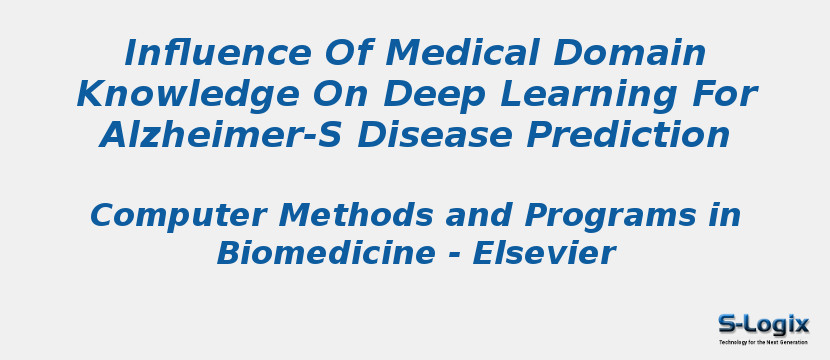Research Area: Machine Learning
Alzheimer-s disease (AD) is the most common type of dementia that can seriously affect a person-s ability to perform daily activities. Estimates indicate that AD may rank third as a cause of death for older people, after heart disease and cancer. Identification of individuals at risk for developing AD is imperative for testing therapeutic interventions. The objective of the study was to determine could diagnostics of AD from EMR data alone (without relying on diagnostic imaging) be significantly improved by applying clinical domain knowledge in data preprocessing and positive dataset selection rather than setting naïve filters.Data were extracted from the repository of heterogeneous ambulatory EMR data, collected from primary care medical offices all over the U.S. Medical domain knowledge was applied to build a positive dataset from data relevant to AD. Selected Clinically Relevant Positive (SCRP) datasets were used as inputs to a Long-Short-Term Memory (LSTM) Recurrent Neural Network (RNN) deep learning model to predict will the patient develop AD.Risk scores prediction of AD using the drugs domain information in an SCRP AD dataset of 2,324 patients achieved high out-of-sample score - 0.98-0.99 Area Under the Precision-Recall Curve (AUPRC) when using 90% of SCRP dataset for training. AUPRC dropped to 0.89 when training the model using less than 1,500 cases from the SCRP dataset. The model was still significantly better than when using naïve dataset selection.The LSTM RNN method that used data relevant to AD performed significantly better when learning from the SCRP dataset than when datasets were selected naïvely. The integration of qualitative medical knowledge for dataset selection and deep learning technology provided a mechanism for significant improvement of AD prediction.Accurate and early prediction of AD is significant in the identification of patients for clinical trials, which can possibly result in the discovery of new drugs for treatments of AD. Also, the contribution of the proposed predictions of AD is a better selection of patients who need imaging diagnostics for differential diagnosis of AD from other degenerative brain disorders.
Keywords:
Author(s) Name: Branimir Ljubic, Shoumik Roychoudhury, Xi Hang Cao, Martin Pavlovski, Stefan Obradovic, Richard Nair, Lucas Glass, Zoran Obradovic
Journal name: Computer Methods and Programs in Biomedicine
Conferrence name:
Publisher name: Elsevier
DOI: 10.1016/j.cmpb.2020.105765
Volume Information: Volume 197, December 2020, 105765
